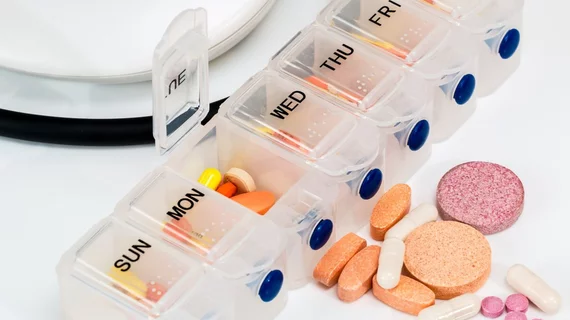A study has confirmed taking zinc and Vitamin C, both of which have been hyped as supplements to reduce or prevent COVID-19 symptoms, in fact has no significant impact on the virus. The findings come at a critical time during the COVID-19 pandemic, as new, stronger variants of the virus emerge.
Zinc and Vitamin C (ascorbic acid) were proposed to reduce the duration and severity of viral infections, such as the flu, by boosting the immune system, and the two were even given to President Donald Trump when he was treated for COVID-19 in October 2020, according to researchers who have had their findings published in JAMA Open Network. However, the efficacy of the two supplements falls flat, the research shows.
“Unfortunately, these [two] supplements failed to live up to their hype,” reads an editorial about the study by first author Erin D. Michos, MD, MHS, of Johns Hopkins University, et al.
As new strains of the virus threaten with easier communicability and worse outcomes, it is critical that effective treatments are communicated and debunked misinformation about supplements don’t permeate health discussions, Michos and co-authors point out. In particular, the supplement industry, which has an estimated global market cap of $300 billion globally, is big business with more than half of U.S. adults reporting they take at least one daily supplement or vitamin for different health reasons. However, there isn't much research to back up the actual health effects, according to Michos. During a deadly pandemic, turning to unverified or ineffective supplements could be dangerous.
The study––conducted by Suma Thomas, MD, MBA, from the Heart and Vascular Institute at the Cleveland Clinic, et al––examined whether high doses of zinc and/or Vitamin C had any impact on duration of symptoms compared to usual care among ambulatory patients with the virus. They examined 214 adult patients diagnosed with COVID-19 within a single health system and sought to find the number of days required to reach a 50% reduction in symptoms, as well as to reach a symptom severity score of 0.
While there was some difference among the duration of symptoms between patients who were treated normally, those who were treated with high-dose zinc and those treated with high-dose Vitamin C, “there was no significant difference in secondary outcomes among the treatment groups,” Thomas et al. write.
Among patients who didn’t receive supplementation, a 50% reduction of symptoms took an average of 6.7 days. That’s compared to 5.5 days for the Vitamin C group and 5.9 days for the zinc group.
The findings suggest that other studies and reported associations between zinc, Vitamin C and COVID-19 are likely more to do with other health risk and health factors, according to Michos. Further, the use of supplements in treating COVID-19 should be considered more carefully before more trials are conducted, Michos and colleagues suggest, due to potential adverse side effects from high-dose supplements. For example, patients in the study’s supplement patient groups reported more nausea, diarrhea and stomach cramps than the usual care group.

